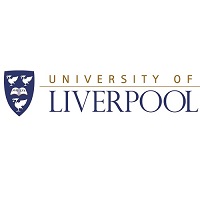Innovative COVID-19 drug testing platform launched

The AGILE initiative is a collaboration between the University of Liverpool, Liverpool School of Tropical Medicine, Southampton Clinical Trials Unit, University of Southampton and Lancaster University, as well as other partners. AGILE has been developed by Infectious Diseases clinicians, clinical and pre-clinical pharmacologists, clinical trials specialists and statisticians. The result is a clinical trials platform that can test new drugs for COVID-19 and identify faster than ever before those compounds which could be game changers in the battle against COVID-19.
Professor Saye Khoo, Chief Investigator on AGILE at the University of Liverpool, said: “In the ongoing COVID-19 pandemic, we need to find innovative ways to identify safe and effective treatments as soon as possible. The AGILE platform bridges the gap between pre-clinical drug discovery and large-scale testing, rapidly identifying drugs that have the best chance of success.
“Seeing the launch of this new platform to test brand new COVID-19 treatments is truly exciting given the impact that any effective treatment could have on the pandemic and restarting society. We are optimistic that AGILE will accelerate the development of treatments for COVID-19, and also prepare us to respond quicker to future pandemics.”
AGILE is a “proof of confidence engine” that can treat COVID-19 patients for the first time with promising drugs that have been developed in laboratories around the world. The trial is conducted at the Royal Liverpool University Hospital Clinical Research Unit, where treatment is carefully monitored throughout by an independent committee to ensure that it is safe to continue, and the first evidence about the effectiveness of the drug for treatment of COVID-19 is accumulated to determine if it should be fast-tracked into large-scale trials.
The design of AGILE means that this can be achieved much more rapidly than when using conventional development pathways for new drugs, so that successful drugs can advance quickly enough to have an impact on the current pandemic. AGILE is flexible and can test drugs that are suitable for patients newly diagnosed with COVID-19 at home, as well as patients in hospital.
The platform has full ethics and regulatory approval in the UK.
Dr Siu Ping Lam, Director of Licensing, at the Medicines and Healthcare products Regulatory Agency (MHRA), comments: “Patient safety is our highest priority. We approved this trial, as it not only innovates in the early clinical trial process, which is crucial in the current pandemic, but it is also robust and safe, providing opportunities for more rapid progress towards suitable treatment options. We are delighted that such a platform, designed by UK clinicians and scientists, has the potential to change the future of clinical trials and global healthcare for the better.”
The first drug set to be trialled in AGILE has been developed by the US pharmaceutical company Ridgeback Biotherapeutics. EIDD-2801 is an oral antiviral drug that has shown promising results against coronavirus infections in pre-clinical studies, and if successful in human trials, could change the future of the pandemic. The team at Ridgeback Biotherapeutics participated in the development and design, as well as provided funding, for the EIDD-2801 arm of the study.
The AGILE Initiative is made possible thanks to support provided through a variety of donors. In addition to funding provided by Unitaid and the Steve Morgan Foundation, some candidate-specific trials will be funded directly and solely through independent private companies (for example, Ridgeback Biotherapeutics). Collaborative financial support has also been provided by the Liverpool School of Tropical Medicine, University of Liverpool, and Southampton Clinical Trials Unit as well as the NHS (Liverpool University Hospitals NHS Foundation Trust). The partners behind AGILE actively encourage other pharmaceutical companies and academic institutions to put forward new COVID-19 treatment candidates for consideration.





















